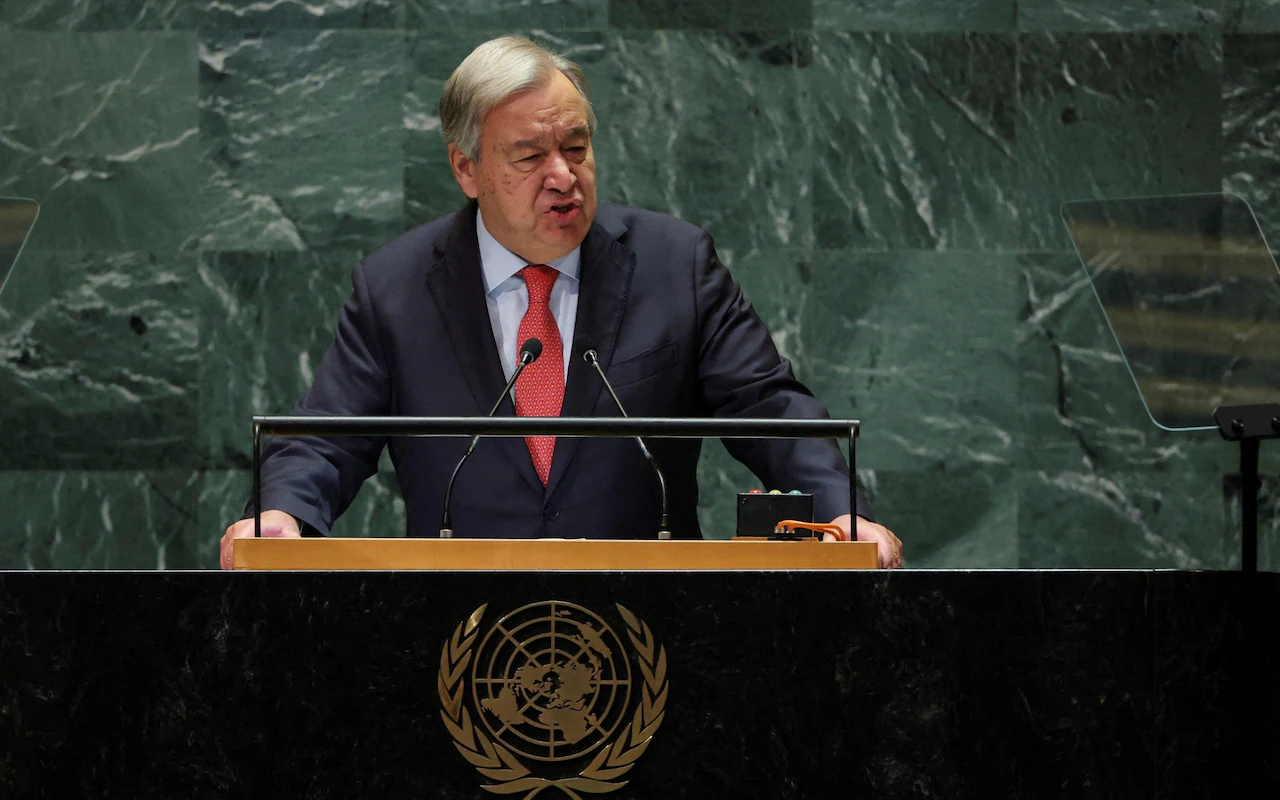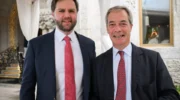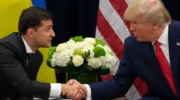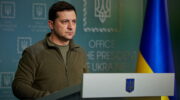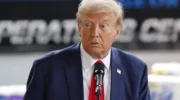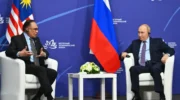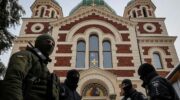António Guterres’s invitation to the Kremlin’s Kazan meeting shows the failure of the United Nations.
What happened to the “isolation” of Russia over its illegal invasion of Ukraine? Britain, along with our Western allies, has spent billions supplying Kyiv with weapons to halt the attack, taken in thousands of refugees and imposed sanctions on Russia intended to damage its economy, not least a ban on importing its oil and gas.
Yet in the city of Kazan, the capital of Tatarstan on the banks of the Volga River, leaders of some 20 countries have gathered for a summit that is nothing less than a diplomatic coup for Vladimir Putin. Far from being shunned as an international pariah, he is chairing a meeting of the so-called BRICS, nations representing around half the world’s population and around 30 per cent of its economy.
They include Brazil, Russia, India, China and South Africa, as well as Iran and Egypt, and the group is a deliberate counterweight to Western hegemony and dominance of world currency and trading markets. Recep Tayyip Erdoğan of Turkey, a Nato member, is also there. The BRICS have been expanding their influence and number for 15 years or so. The presence of Xi Jinping, president of China, and Narendra Modi, India’s prime minister, is indicative of its importance, rivalling the G7.
But the fact that it is taking place in Russia, which is supposed to be in the international dog house, is deeply worrying to Ukraine. Most extraordinary of all is the invitation to António Guterres, the Secretary General of the United Nations to attend, something his office was unprepared to deny even as the summit was getting under way. What on earth would possess him to do so? A Portuguese socialist, Guterres has never shown any great inclination towards favouring Western democracies, and neither should he. He is not representing the US or UK but the UN.
Yet he is not even doing that. Shortly after Russia’s invasion in February 2022, the UN general assembly in emergency session adopted a resolution deploring the Kremlin’s action and demanding the full withdrawal of its forces and a reversal of its recognition of the Ukrainian breakaway republics of Donetsk and Luhansk. It was passed by 141 votes to five, with 35 abstentions, though was vetoed by the Russians on the security council.
Among those nations voting in favour were Brazil and Egypt, whose leaders are now happy to hobnob with Putin in Kazan. Abstainers at the time included India and China, which should have alerted us to the limited prospect of turning Russia into the equivalent of North Korea. Indeed, the latter is now supplying troops to serve as Russian cannon fodder in the grinding war on the Ukrainian front line.
Mr Guterres has handed Putin a propaganda coup even by indicating he may turn up at the shindig in the shadow of a citadel, built by Ivan the Terrible, known as the Kazan Kremlin. Moreover, several of the countries attending are signatories to the Rome Statute setting up the International Criminal Court, which has issued a warrant for Putin’s arrest alleging war crimes.
There has been remarkably little comment about this event in the Western media, fixated as ever on the unfolding Grand Guignol drama in the United States. An overriding obsession with what is, admittedly, an important election is blinding us to the rapidly changing face of geopolitics that the BRICS summit represents.
Putin is using it to show that he is not isolated, but it is more than that. It coincides with the annual autumn meetings of the World Bank and the International Monetary Fund (IMF) in Washington, at a time when the authority of Western financial systems is weakening around the globe. Even though the world’s economic and demographic centre of gravity has shifted eastwards, voting power in these financial institutions remains disproportionately in the West’s favour, much to the BRICS’s irritation.
Although the Russian economy has slowed, the efforts to smash it have failed, not least because so many countries continue to buy its oil and gas. It still faces difficulties because so many payments are linked to the dollar. Putin aims to break US Treasury dominance by creating an alternative cross-border settlement system that does not involve any of the G7 currencies. That will render sanctions, already lacking in bite, worthless.
The latest plan to use the interest from frozen Russian bank accounts to fund Ukraine – including a £2 billion loan from the UK – will keep up Kyiv’s heroic resistance but will be portrayed by Putin as just another Western plot against Mother Russia and will make no difference if he continues to be propped up by his BRICS backers.
The one saving grace is that the BRICS contain some odd bedfellows, never likely to agree on anything, notably China and India. Egypt and Ethiopia are unlikely to see eye to eye either, nor Saudi Arabia and Iran. Unlike the G7 of industrialised nations, enmities ancient and modern will probably scupper Putin’s aggrandising ambitions.
Nonetheless, this is a summit of great importance to the balance of global power and to the future of Ukraine. If Donald Trump does win the White House next month he will be emboldened to pull the plug on support for Kyiv by dint of Russia emerging largely unscathed by two and half years of Western sanctions and despite a vast outlay of financial help. True, Russia has lost tens of thousands of men in Ukraine but it has a limitless capacity for suffering, as its bloody history shows.
Unsurprisingly, the Ukrainians are furious that Guterres has been invited to Kazan, because they can see where this is all leading. The UN says the Secretary General has consistently criticised Russia’s actions, stating that Moscow’s ongoing military operation in Ukraine sets a “dangerous precedent” for the world. In which case, why give Putin the cachet of attending his summit? The UN, and Guterres in particular, have also adopted a morally ambivalent position on the Middle Eastern conflict – to put it charitably.
Most brazenly, the Russian leader has set himself up as a representative of post-colonialism even as he hosts a summit in an ancient Khanate annexed by Russia. Moreover, what else is the attempt to occupy Ukraine other than an imperialist venture? But such niceties are lost on countries eager to cock-a-snook at the West and show that its writ no longer runs as far as it once did.

